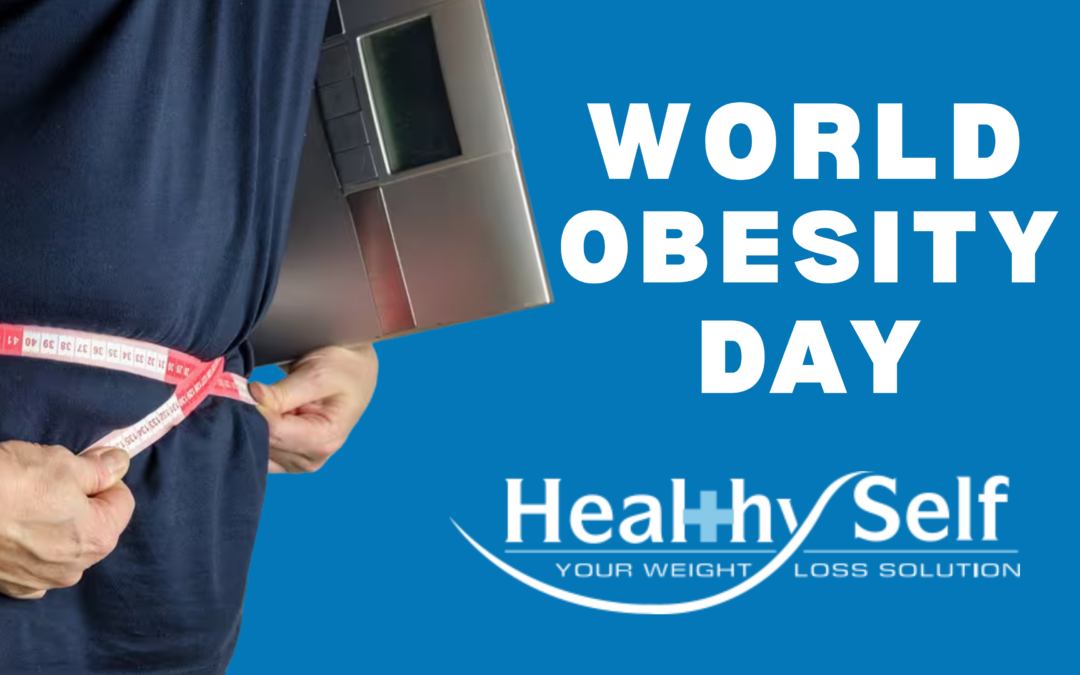Understanding World Obesity Day
World Obesity Day is a global event dedicated to raising awareness about obesity and its far-reaching effects on health and society. Observed annually, it emphasizes prevention, education, and support for individuals managing their weight. In 2025, the campaign will highlight not only the medical aspects of obesity but also its psychological, social, and economic impacts.
In the United States, obesity remains a significant public health concern. Between August 2021 and August 2023, the prevalence of obesity in adults stood at 40.3%, with similar rates among men and women. Obesity was more common among adults aged 40–59 than those aged 20–39 or over 60. The increasing prevalence of obesity places immense pressure on healthcare services, underscoring the need for comprehensive education, medical support, and lifestyle interventions.
For more information on how to participate, visit the Obesity Action Coalition website.
Obesity in the U.S. and Around the World
Obesity rates are rising globally, with the United States seeing significant increases in recent years. Key facts include:
- More than 40% of U.S. adults are obese, and the numbers continue to grow.
- Obesity-related conditions, including type 2 diabetes, heart disease, and stroke, cost the healthcare system billions annually.
- Nearly 1 in 5 children and adolescents (19.3%) in the U.S. have obesity.
- By 2050, projections suggest over 250 million people in the U.S. will be overweight or obese.
- Globally, obesity rates have tripled since 1975, increasing the risk of chronic diseases worldwide.
Is Obesity a Disease?
A common question is whether obesity is a disease. Both the NHS and the World Health Organization classify obesity as a chronic disease that requires medical intervention and lifestyle changes.
Obesity is not just about excess weight; it is influenced by genetics, metabolism, diet, and physical activity levels. It is associated with increased risks of conditions such as type 2 diabetes, heart disease, and certain cancers. Recognizing obesity as a disease helps to reduce stigma and encourages individuals to seek professional support.
If you are concerned about your weight, visit the Obesity Action Coalition for medical guidance, treatment options, and lifestyle advice.
Understanding BMI and Obesity Classifications
Obesity is often measured using Body Mass Index (BMI), which assesses weight in relation to height. According to the NIH, BMI classifications are:
- Normal weight: 18.5–24.9 kg/m²
- Overweight: 25–29.9 kg/m²
- Obesity (Class I): 30–34.9 kg/m²
- Obesity (Class II): 35–39.9 kg/m²
- Obesity (Class III): ≥40 kg/m² (also known as severe or extreme obesity)
However, BMI alone is not a perfect measure of health. Additional factors like waist circumference, cholesterol levels, and blood sugar levels provide a more complete picture of obesity-related risks.
Health Risks Associated with Obesity
Obesity is linked to numerous serious health risks, including:
- Heart disease and stroke – Leading causes of death in the U.S.
- Type 2 diabetes – Strongly associated with obesity, leading to nerve damage, kidney disease, and vision problems.
- Certain cancers – Increased risk of bowel, breast, and pancreatic cancer.
- Mental health challenges – Depression, anxiety, and low self-esteem are often associated with obesity.
Starting a Weight Loss Journey with Professional Support
Beginning a weight loss journey can be overwhelming, but professional support is available. The NHS recommends:
- Setting realistic goals – Small, sustainable changes lead to long-term success.
- Eating a balanced diet – Reducing processed foods, sugar, and unhealthy fats.
- Increasing physical activity – Aiming for at least 150 minutes of moderate exercise per week.
- Seeking professional support – Consulting with healthcare providers, using weight management services, and considering weight loss medication or surgery if necessary.
For expert-supported weight loss solutions, book a consultation with a professional weight management provider.
The Global Obesity Crisis
Obesity is not just a U.S. issue—it is a worldwide crisis. The WHO reports that obesity rates have tripled in the last 50 years, putting millions at risk of life-threatening conditions. Countries worldwide are implementing public health strategies focusing on education, prevention, and healthcare improvements to combat obesity.
Take Action on World Obesity Day 2025
World Obesity Day serves as a reminder of the urgent need for education, prevention, and action against obesity. With rising obesity rates in the U.S. and beyond, understanding the facts and recognizing the risks are crucial steps toward a healthier future.
If you’re ready to take charge of your health, schedule an appointment with Healthy Self Weight Loss for expert-guided, personalized weight management solutions.
For more resources and ways to get involved, check out the Obesity Action Coalition website and join the movement towards a healthier future.

